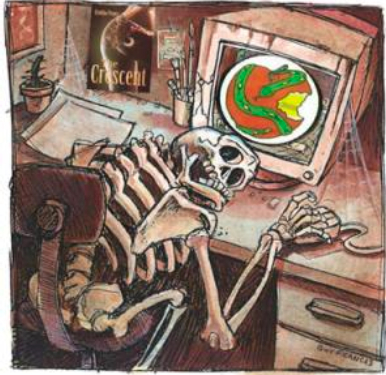(Featured Image courtesy of RedRoom.com)
Writing my first novel was a truly unforgettable experience.
When I began this novel,
Booked a trip into my head,
The task nagged at me daily
Pulled me often from my bed,
Ripped asunder memory’s curtain,
Left me threadbare, weak, uncertain,
Chasing after, never knowing where I’m led.
Soon skeletons come creeping
From my closet to my page.
Lost in a sea of feeling,
Adrift in fear and rage,
Tis an impossible endeavor.
That will surely take forever
With no promise of succeeding and no wage!
I neglect my household duties,
Out of contact, out of sight.
My family may disown me,
Disturbed by what I write.
But lets forget the ticking clock,
For out beyond the writers block,
Words are waiting and may just come to light.
And now that it is finished, (See the Review below)
I’ve begun to write another book!
The Way Back is in two e-book stores (all of them very soon). Below is the link to Amazon’s Kindle where The Way Back is amazingly inexpensive . If you like it, please write a short review for Amazon and me. http://bit.ly/SoldiersJourney

Rating: 5.0 stars
Reviewed by Rich Follett for Readers’ Favorite
The Way Back: A Soldier’s Journey by S.K. Carnes tells the story of John Chapman, a World War I veteran with PTSD and a poet’s soul. He finds work as a farmhand with a dairy farming family who, in their own stalwart, beholden-to-no-one way, help him find the ‘way back’ to wellness and a happy life. The narrative is a kind of historical/poetic frame story, weaving together the lives of three generations of characters through the central prism of Chapman’s journal, found in a barn being torn down in present day Wisconsin and lovingly shared by the author as a tribute to Chapman.
The Way Back: A Soldier’s Journey alternately features lush and lyrical narration, Chapman’s poems (copied from his journal), carefully researched historical and cultural references from World War I through the Great Depression and the dawning of World War II, and colloquial Wisconsin dialogue that is as heartwarming and educational as it is funny in that particularly wry Midwestern way that can only be depicted accurately by a native. S.K. Carnes is a gifted writer at the top of her game, capturing the images and episodes of an era and a heartland lifestyle that is rapidly vanishing from the American consciousness with a clarity and poetic vision that render the narrative unique and compelling. In an early glimpse of Chapman, Carnes describes her quiet hero as having “Muckelty-dun eyes rimmed in blue … eyes of that color could steal your heart away.” Prose like that does not come along every day!
The Way Back: A Soldier’s Journey has something to please any reader – romance, history, adventure, drama, poetry, a quietly epic feel, a magnificently rendered landscape, and eclectic characters unlike any of the ‘ho-hum’ heroes of lesser fiction. Having once entered John Chapman’s world, readers will want to linger, holding close one of the most pure-of-heart and earnestly crafted narratives in recent memory.






